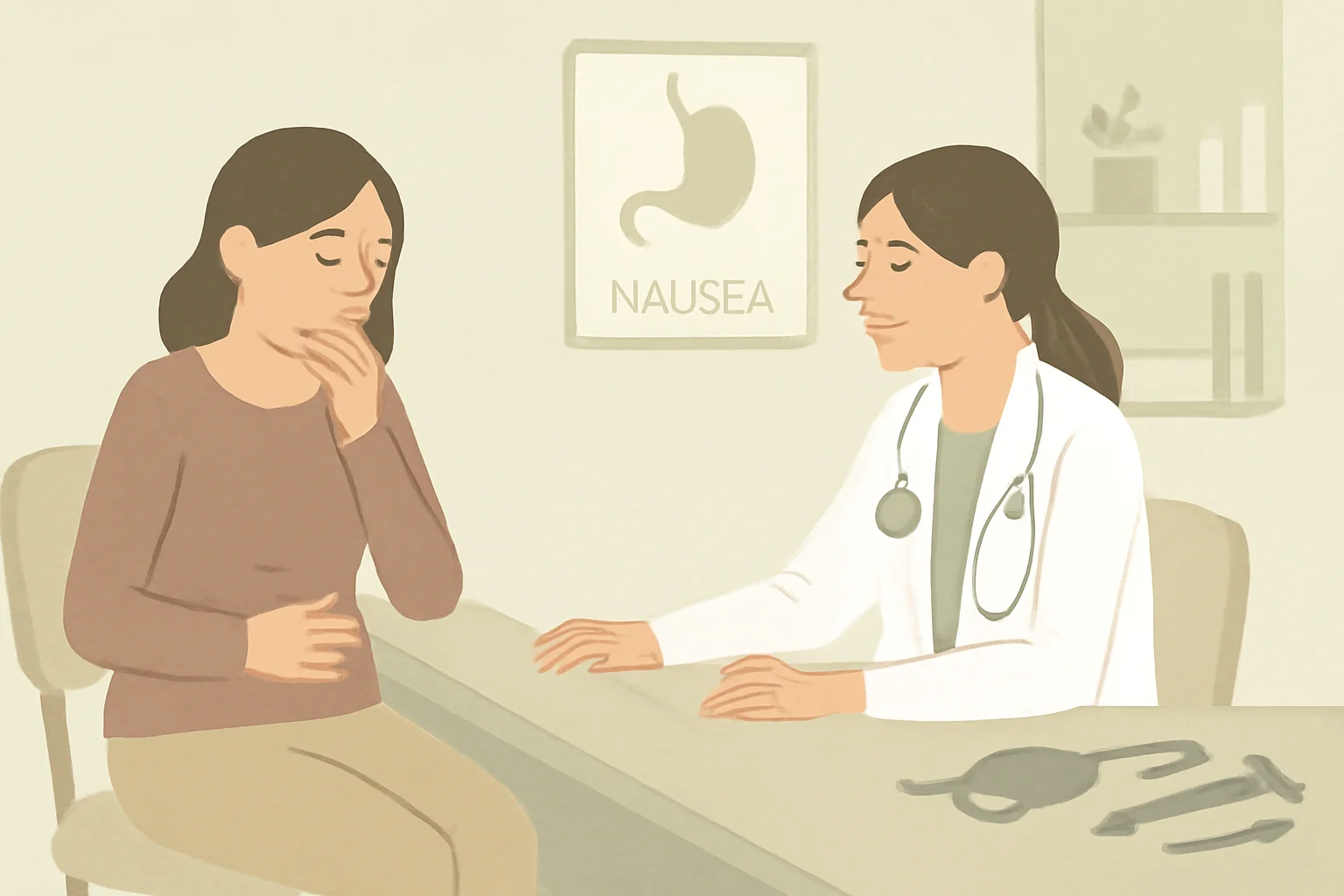
Nausea or Queasiness? Causes and Solutions You Should Know
The feeling of nausea and queasiness is common and bothersome in everyday life, and can arise from various causes. These symptoms are often transient, but in certain situations, they may indicate more serious issues. The human body is extremely complex, and nausea can be attributed to different factors, which may be physical, psychological, or even nutritional in nature. Nausea generally signals a disturbance in the functioning of the gastrointestinal tract, but it can also be triggered by stress, anxiety, or even changes in the environment. When symptoms appear, many seek immediate solutions, whether they involve medications, natural remedies, or lifestyle changes.
The sensation of queasiness is closely intertwined with the factors that trigger nausea, and it often occurs alongside nausea. Nausea and queasiness are not just physical symptoms; they also reflect the connection between the body and the mind. It is worth understanding that these symptoms are often warnings from our body, signaling that something is not right. A healthy lifestyle, proper nutrition, and stress management techniques can all contribute to avoiding nausea and queasiness, but if symptoms persist, it is important to consult a physician.
The Causes of Nausea
Nausea can arise from numerous causes, many of which are common in everyday life. One of the most prevalent reasons is gastrointestinal issues, such as gastritis or peptic ulcers. These conditions cause inflammation that irritates the stomach lining and can trigger nausea. Additionally, excessive production of stomach acids can also contribute to the onset of nausea.
Another common trigger of nausea is a change in dietary habits. For instance, if someone suddenly starts consuming healthy but unfamiliar foods, their stomach may not immediately adapt to this change. Overeating, as well as consuming fatty or hard-to-digest foods, can also cause nausea. Sensitivity of the gastrointestinal tract, which may be heightened in some individuals, can also contribute to nausea.
Stress and anxiety also play a significant role in the development of nausea. Psychological factors, such as tension, anxiety, or fear, can physically affect the stomach and cause nausea. Furthermore, motion sickness, which occurs during travel, is also a frequent source of nausea. Due to disturbances in the balance organ located in the inner ear, the brain perceives that the body is in motion while the eyes do not experience such movement, creating a dissonance.
Finally, it is important to mention that medications can also cause nausea. Many medications list nausea among their side effects, especially chemotherapy agents, antibiotics, or pain relievers. If someone starts taking a new medication and experiences nausea, it is advisable to consult their healthcare provider.
The Symptoms of Queasiness
The sensation of queasiness is often associated with nausea, and the symptoms encompass a wide spectrum. Queasiness is an uncomfortable, constricting feeling that typically occurs around the stomach area. This sensation often precedes vomiting, but it does not always lead to it. Queasiness can be triggered by anxiety, stress, or even a decline in physical condition.
Symptoms of queasiness may include a constricting feeling in the stomach, increased saliva production, and dizziness. These symptoms can manifest to varying degrees and often depend on the underlying causes. For example, if nausea arises from stressful situations, the affected person may also experience anxiety or a panic attack. Additionally, queasiness is often associated with fatigue, which further deteriorates overall well-being.
The feeling of queasiness can manifest in various forms. The affected individual may find it difficult to articulate exactly why they feel unwell. The sensation can be sharp or dull, and it may even be wave-like, meaning it comes and goes periodically. Physical activity, such as movement or sudden motions, can exacerbate queasiness, while rest and relaxation may help alleviate symptoms.
In some cases, queasiness and nausea may be accompanied by other symptoms, such as headaches, fever, or abdominal pain. These associated symptoms can help identify the underlying causes, and it is important to pay attention to them, as they may indicate more serious health issues. If queasiness persists or is accompanied by more severe symptoms, it is crucial to seek medical assistance.
How to Manage Nausea and Queasiness?
Managing nausea and queasiness can involve various methods, and these approaches often depend on the underlying cause. The first step is to identify the trigger, as knowing what causes the symptoms is essential for appropriate treatment.
If nausea is related to dietary habits, it is advisable to pay attention to what one eats. Easily digestible foods, such as rice, bananas, or toast, can help alleviate symptoms. Avoiding fatty and spicy foods is also recommended, as these can exacerbate nausea. It is important for those affected to consume enough fluids to prevent dehydration, especially if vomiting occurs.
Managing stress and anxiety can also play a key role in alleviating nausea and queasiness. Relaxation techniques, such as breathing exercises, meditation, or yoga, can help reduce stress levels and improve overall well-being. Additionally, regular physical activity can have beneficial effects on stress management and the functioning of the digestive system.
If nausea and queasiness arise due to medications, it is important to consult with a healthcare provider about possible alternatives. In certain cases, reducing or modifying medication may help alleviate symptoms. Alternative solutions, such as consuming ginger or peppermint, may also be beneficial, as they can naturally alleviate nausea.
If nausea and queasiness persist or are accompanied by more severe symptoms, medical assistance should be sought, as they may indicate more serious health problems.
**Warning:** This article does not constitute medical advice. If you have a health problem, please consult a physician!

